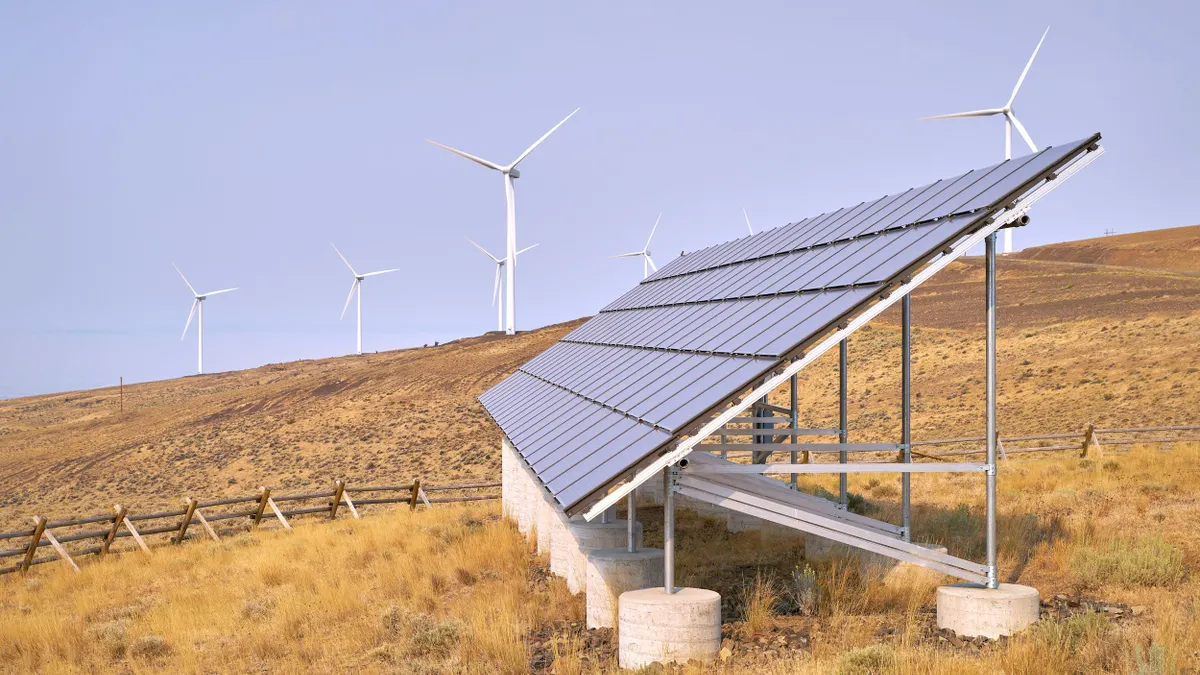Dive Brief:
- Based on low, medium and high emissions scenarios, the U.S. will reduce greenhouse gas emissions 26%-41% in 2040 compared with 2005 levels, according to Rhodium Group’s Taking Stock 2025 report.
- However, the pace of decarbonization will slow dramatically, partially due to recent and potential policy changes by Congress and the Trump administration. Under the high emissions scenario, Rhodium estimates that average annual U.S. GHG emissions reductions were 1.1% from 2005 to 2024. That figure is now projected to fall to just 0.4% from 2025 to 2040, a 64% relative decline.
- “The outcomes we report throughout Taking Stock this year are subject to considerable uncertainty, including an incredibly dynamic policy environment and persistent non-cost barriers to clean energy deployment,” the Sept. 10 report says. “These factors will continue to shape how the energy system and GHG emissions evolve in the coming years.”
Dive Insight:
The Trump administration and congressional Republicans have adopted or proposed a wide range of policies that are likely to increase climate pollution compared with policies under the Biden administration. Those changes include a second withdrawal from the Paris Climate Agreement, ending federal tax credits for electric vehicles and altering other clean energy credits, eliminating federal rules limiting GHG emissions from fossil fuel power plants, blocking wind and solar projects and more.
“The effects of these policy shifts are compounded by rapid growth in electricity demand driven predominantly by the growth in large AI data centers, a weakening macroeconomic outlook, and an increasingly export-driven fossil fuel sector,” the report says.
Additionally, Rhodium said its estimates should be taken with a grain of salt, given the unstable economic and policy environment.
“Emissions outcomes vary due to a range of expectations for economic growth, future fossil fuel prices, and clean energy cost and performance trends,” according to the report.
Under the medium and low emissions scenarios, decarbonization would likely continue to accelerate rather than slow with annual GHG emissions declining 1.4% and 1.9%, respectively, according to the report.
The power, transportation, and oil and gas sectors are driving emissions reductions in GHG.The power sector is projected to emit 15%-43% fewer emissions in 2040 compared with 2024 levels, despite growing electricity demand, the report found.
“Renewables grow substantially in all three emissions scenarios through 2030 to claim the expiring clean electricity tax credits, but deployment diverges after that,” according to Rhodium.
Transportation emissions, meanwhile, will fall 8%-20%, as zero-emissions vehicles comprise a larger share of the U.S. vehicle fleet, according to Rhodium. The report attributes the increased market share to falling battery prices and greater consumer acceptance.
Likewise, Rhodium estimates industrial emissions, tied closely to the oil and gas business, will decline 4%-19%.













